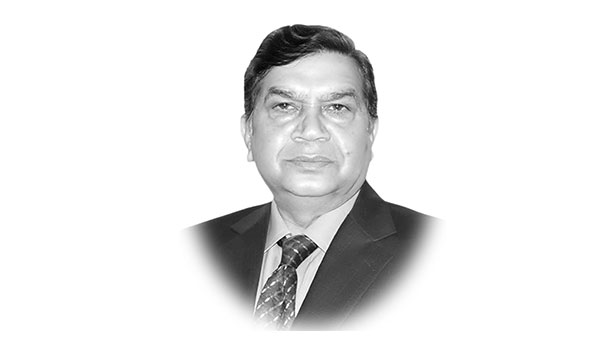Two-Nation Theory vindicated, yet again
PRIOR to the British conquest of India, economic and social interconnections between the followers of different religions in the united India, forged over the centuries, had helped establish a framework of peaceful coexistence and interdependence.
However, a few fateful developments during the 1st quarter of the 20th century sew the seeds of mistrust and misgivings between Hindus and Muslims, which besides leading to the partition of India, have made over one billion people of this region hostage to the unimaginable woes like poverty, unemployment, disease, hunger, overpopulation, crime, unhygienic living and lack of basic civic amenities.
The emergence of Rashtriya Swayamsevak Sangh (RSS), in 1924-25 as the strongest representative of radical Hindu nationalism, irremediably beleaguered Hindu-Muslim relations.
RSS promotes the ideals of upholding and propagating the ideology of Hindutva (Hinduness) to strengthen the majority Hindu community.
The Bhartiya Janta Party (BJP), the ruling party of India, adopted Hindutva as its official ideology in 1989.
Many Indian social scientists have described the Hindutva a fascist movement, adhering to the concept of majoritarianism or the hegemony of a regimented majority.
Instead of learning from the inauspicious consequences of their policy of attempting to make India a Hindu state, which resulted in the partition of India in 1947, radical Hindu political groups, especially the ruling party BJP and RSS, with the full support of Indian media, have continued to further reinforce animosity between Hindus and Muslims even 75 years after the partition of India.
Though India boasts of being a secular state, where followers of different religions can peacefully coexist, the on-ground reality is much different.
A research analysis conducted about a decade ago, ranked India as the fourth worst in the world for religious intolerance.
Since Narendra Modi, a Hindu nationalist and leader of the right-wing BJP, became the Prime Minister of India in May 2014, groups of radical Hindu nationalists have been terrorising religious minorities across the country.
According to a leading Christian rights group, at least 600 such attacks took place between Modi’s election and August 2017.
One hundred and forty-nine of these assaults were against Christians; the rest targeted Muslims.
The attacks, say the critics, are being organised by the radical groups (such as Bajrang Dal) affiliated to RSS.
Prime Minister Modi is a permanent member of the RSS, and the backing of its members was crucial in helping BJP party win the 2014 elections.
Emboldened by the election result, Modi’s most extreme nationalist supporters have routinely taken to the streets, using violence and intimidation to press their claim for a purely Hindu India.
As Muslims across the world protest the recent blasphemous remarks against the Holy Prophet (PBUH) by two Indian politicians; Nupur Sharma and Naveen Jindal of BJP, progressive Hindus have also come forth to condemn the Islamophobic statements.
According to Delhi University Professor Aupuravanand, anti-Muslim hatred was rampant in India for many years, but when the BJP government came into power, steps were taken by the RSS to harm Muslims.
“In particular, to hurt the religious sentiments of the Muslims, the holy book of the Muslims, the Holy Qur’an, was desecrated, and the Prophet (PBUH) of Islam was targeted,” he said.
He maintained that in India, the ridicule of Muslims had become commonplace and extremist Hindus, especially the RSS, were openly doing so.
The Professor added that when Nupur Sharma made her blasphemous statement, the government should have taken immediate action but instead they acted reluctantly.
He further said that an FIR was lodged after protests from Muslim countries but that neither BJP leader had been arrested so far.
“Protests are gaining momentum inside the country. The government is working to add fuel to the fire as protesting Muslims are being arrested,” which he termed as ‘Collective extrajudicial punishment’.
Also on Tuesday, in a letter to the Chief Justice of Indian Supreme Court, six prominent former judges and six senior lawyers said the government in Uttar Pradesh State had acted illegally by demolishing the house of a Muslim activist following the protests.
State Chief Minister Yogi Adityanath, a saffron-robed BJP hardliner, ordered the weekend demolition of any illegal buildings of people accused of involvement in violence last week, including the home of activist Mohammad Javed on Sunday.
Since taking office in 2014, Mr.Modi has often been accused of stirring anti-Muslim sentiment or remaining silent when Hindu nationalists attacked Muslims solely to advance his personal political agenda by appeasing radical Hindu groups active against Indian Muslims.
If India and Pakistan had friendly relations after the partition, the subcontinent could be one of the most prosperous regions in the world.
Unfortunately, both countries continue to expend their relatively meagre resources, energies and efforts to devise all types of ways and means to annihilate each other, instead of cooperating to raise the living standards of their people by eliminating poverty, unemployment, illiteracy and outdated beliefs and practices.
Besides vindicating the creation of Pakistan on the basis of Two-Nation Theory, radical Hindu fanatics, like Narendra Modi and his close aides in BJP and RSS, have caused irrevocable dent to any hopes of bringing the two nations closer to each other by exploiting their common cultural heritage as well as linguistic, ethnic and historical affinities.
These shortsighted religious fanatics, unfortunately, aren’t aware that culture and art are far more effective means of conquering the hearts of people than the intimidation.
In the recent past, when Indian movies and TV music and comedy programmes were shown in Pakistan, reportedly an Indian political leader remarked, “We have won the hearts of Pakistani people without firing a single bullet”.
—The writer is contributing columnist based in Islamabad.









